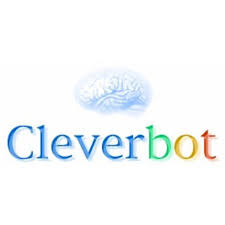Google Assistant surely helps us by setting reminders, sending texts, playing music and calling people on behalf of us. These are just a few things from the ample of benefits it provides. But, have you ever experienced a friendly conversation with a machine without realizing that you are talking to one.
Almost every smartphone users at least once tried to have a funny conversation with either Google or Siri, but after some point, it becomes evident that we are talking to a human-built program. The replies from the bot are not always friendly and not how humans speak to each other. This is where the true power of AI was unleashed by Rollo Carpenter when he came up with Cleverbot.
Cleverbot, a web application to serve the purpose of a chatbox was created by Rollo Carpenter. The application went public in 1997 and even passed the Turing Test with 59.3% accuracy while the minimum criterion is 30%. The application is developed entirely based on AI algorithm. It was built to serve the humans by chatting where the latter one won’t feel like it is speaking to a bot at all.
Rollo Carpenter
Having played the role of managing director for more than one company, Rollo Carpenter did some excellent works throughout his career. Born in 1965, Carpenter started his career as the co-founder of Bizfinity Inc. Through the years, Carpenter vehemently experimented with AI and ML and came up with the idea of developing a chatbox.
His main motive was to build AI-based software that can learn from the conversations carried out with humans and reply accordingly. When Cleverbot was developed, it initially conversed with Carpenter and his associates and it turned out to be very friendly and entertaining.
In 2005 and 2006, Carpenter acquired the first position in Loebner Prize Contest for his AI-based software. In October 2005, Carpenter joined Icogno Ltd as its Managing Director followed by acquiring the same position in Existor Ltd after three years. Carpenter launched his project, Jabberwacky to create AI-based entertaining chatbox and hence Cleverbot was launched as one of its product.
About Jabberwacky
Carpenter started working on Jabberwacky since 1986. He launched Cleverbot in 1997 as a product of his project, Jabberwacky. Today, Cleverbot is nothing but the updated and modified version of Jabberwacky in the market.
Carpenter started programming for a very young age and became quite impressive in managing databases at an early teen. The idea of programming a chatbot clicked in his mind when he was working with these hardcore programming languages.
The first strategy that came into his mind was building a feedback system for the bot which will help it learn from the humans. His main goal was to make the chatbot learn from humans today and implement on them tomorrow.
When Jabberwacky went online in 1997, the bot received almost 20,000 entries and carried out different conversations with every individual. In 2003, Jabberwacky crossed more than a million interactions which turned up to 150 million in 2019.
The most unique feature of this chatbot is its model is based on AI. When you speak to Google Assistant you might notice that after a certain point of time it keeps repeating a particle sequence. This elaborates the fact that any normal chatbot has a particular pattern easily distinguishable by humans. But, Jabberwacky has proved that its borrowed intelligence makes it different from most of them.
Jabberwacky’s new version, Cleverbot performed so well in convincing humans that they are not talking to a program that it passed the Turing Test with a whopping 59%.
Cleverbot
After the Cleverbot went online and passed the Turing Test a lot of modifications have been done to it. The test was conducted by IIT Guwahati on 3rd September 2011. It was declared a success when it entertained and fooled around 59.3% of participants to be exact. Since Cleverbot saved the responses from previous human interactions it improvised itself every day.
Today, Cleverbot can easily carry out around 7 million interactions at a time efficiently. Since 2014 Cleverbot has started using GPU techniques. The entire team is working on launching a new version of the chatbox implementing machine learning. Carpenter, in an interview, said that the data accumulated is more important for the software since the stored data helps it responds differently.

Annasha Dey is an NIT student, who apart from studying engineering is also a content writer. She has a great interest in photography, writing, reading novels, and travelling as well. She is a foodie who loves socializing and hanging out with her friends. She is also a trained Kathak dancer and a big fashion enthusiast. Dey also loves watching TV series, which includes F.R.I.E.N.D.S. and Big Bang Theory. To be a better writer she prefers to read more
